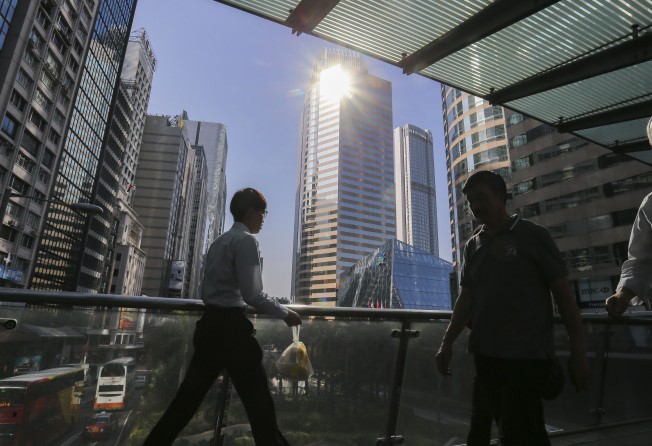Hong Kong is right not to follow the US in cutting taxes
The city has many other advantages that make it attractive to international businesses, and it should make sure it retains them

For once Hong Kong’s lacklustre financial secretary, Paul Chan Mo-po, had something sensible to say when he declared that there was no reason for the city to follow the United States in cutting taxes.
He also made the sensible remark that Hong Kong should not be overreliant on its low tax regime to remain internationally competitive.
And, in case anyone has forgotten, let’s remember that with a corporate tax rate of 16.5 per cent, Hong Kong already has one of world’s least demanding tax regimes.
The Trump administration and its supporters in Congress assert that their proposed tax cuts will add an annual 3 per cent to US economic growth. Claims of this kind are inevitably made when tax cuts come under discussion. They emanate from a dogged belief that allowing both corporations and individuals to retain a greater proportion of their earnings will stimulate spending and therefore create more jobs: the jargon term for this is supply-side economics.
Although this assertion is made often and loudly, it does not have the benefit of proof. At best the evidence is mixed.
When the Bush administration cut taxes, the last time a Republican was in the White House, the Congressional Budget Office (CBO) confidently predicted that something like 4.6 jobs would be created from every US$1 million saved in tax cuts. There is no evidence that this happened but, to be fair, the same report also said that if the only aim were to create jobs it would be far more effective to limit tax cuts to payroll taxes. Indeed there is quite a lot of evidence that even more specific targeting would work better as tax cuts among the lower paid go straight into consumption whereas the better off are more likely to put the windfall into savings, while corporations tend to use the cash for higher dividends that may or may not go into consumption.
The US Bureau of Labour Statistics studied the impact of tax cuts over a 25-year period and found that high income earners used only 48 per cent of their tax saving for additional consumption, while low income earners used 86 per cent.
So, it is misleading to assume that tax cuts axiomatically go into consumption. In fact, as the CBO also found, the most effective way of boosting jobs was, ironically, to increase unemployment benefits, as every US$1 million spent here is likely to create 19 new jobs. This seemingly contradictory finding has largely been ignored.
The immediate impact of the Bush government’s 2001 tax cuts was indeed an economic stimulant, however the cuts came at the same time as the Federal Reserve was lowering interest rates, so which policy was really driving things?
In other words economic growth and attempts to stimulate growth are rarely a matter of just one factor.
Other factors not only matter but may well be more conducive to wider policy objectives, so governments need to find other ways to create not just short spurts of economic growth but to improve the underlying economy. There is also the question of whether tax cuts achieve wider social goals that are arguably just as important as economic ones.
In a place like Hong Kong, with a narrowly based economy and a great reliance on external factors, the government is understandably thinking about ways to broaden the economic base, but goes about it in a cack-handed manner by assuming that the state knows best when it comes to developing new technologies or even food trucks! This, combined with the obsession of pouring taxpayer’s money into mega communications projects with mainland China, does little to stimulate economic growth because the projects themselves are of dubious economic benefit and the people building them send most of their earnings overseas.
No one seriously believes that the reason international corporations choose Hong Kong as a regional base is solely connected to the low tax regime. Equally, if not more important, are factors such as rule of law, freedom of communication, high levels of literacy and competence among the workforce, good infrastructure, and, dare we mention this, the fact that Hong Kong is part of the world’s largest nation but sufficiently separate to provide the confidence that business needs to thrive.
The tragedy is that every one of these plus factors is capable of being compromised by a government that has as its overriding priority the desire for greater integration with mainland China. The closer it comes to realising this goal, the less attractive the city will be as an international business centre. Should those bent on complete integration have their way the level of taxation will become increasingly irrelevant unless Hong Kong believes that its future lies in becoming another dubious shelter for international tax dodgers.
Stephen Vines runs companies in the food sector and moonlights as a journalist and a broadcaster